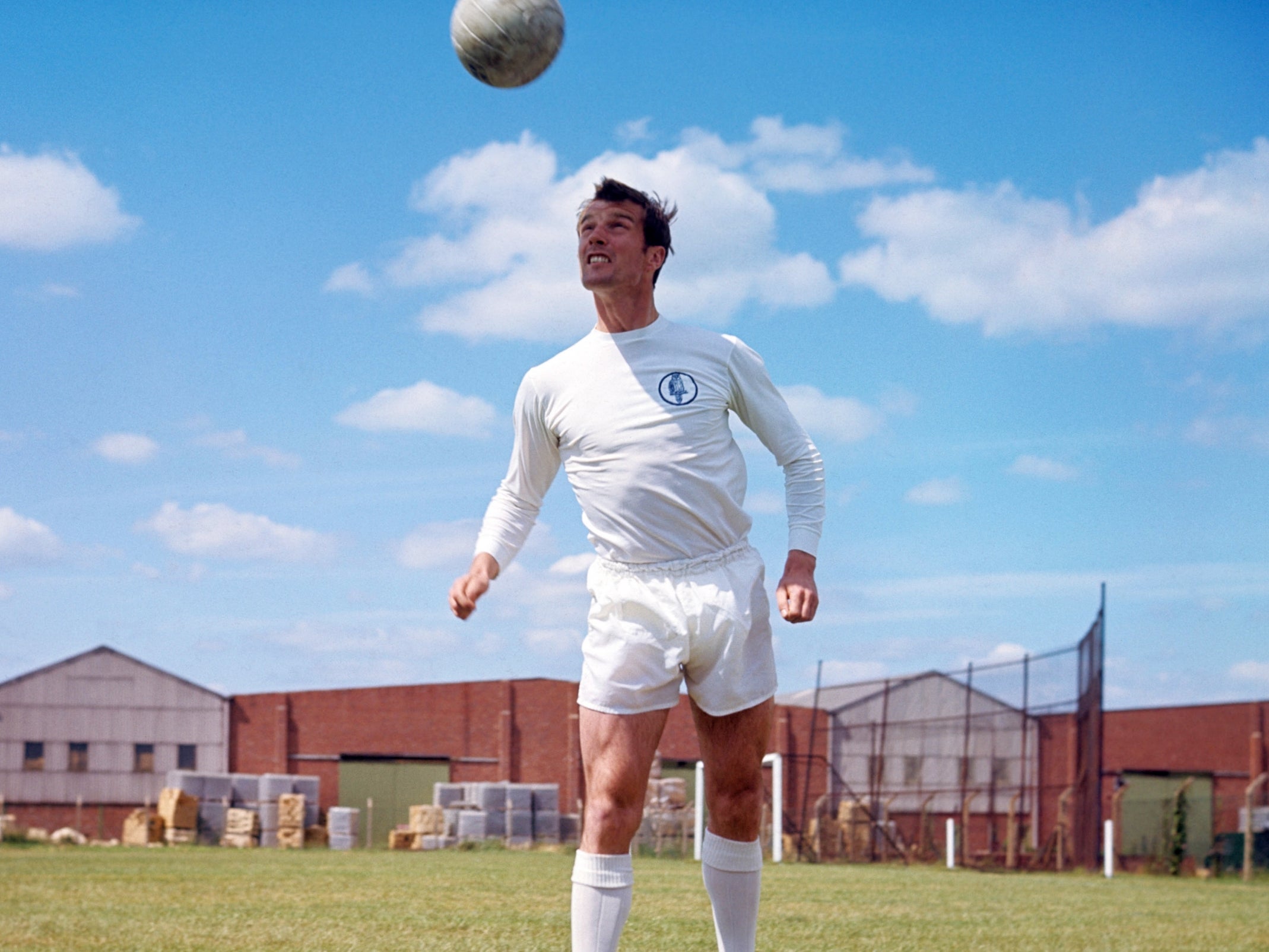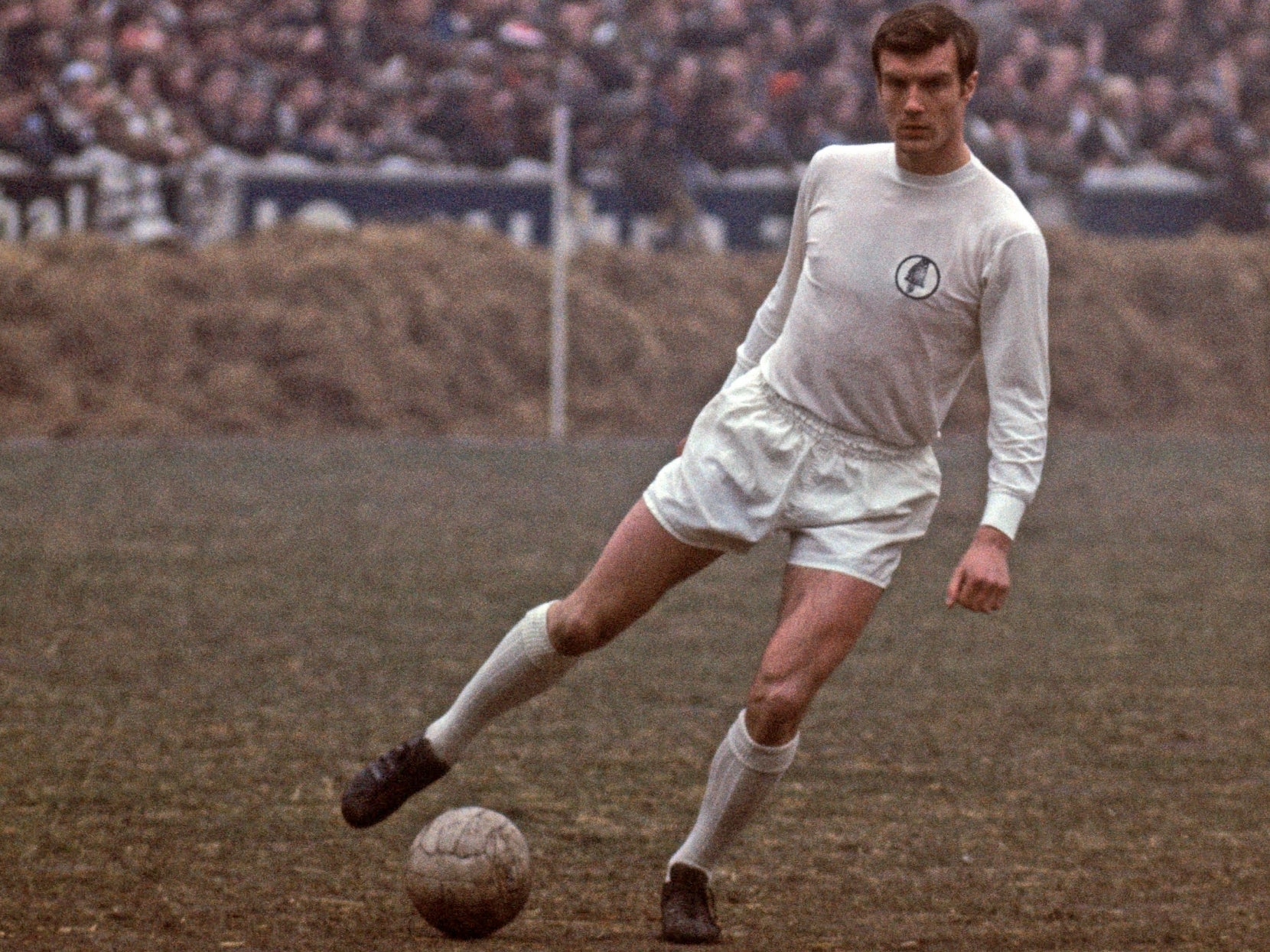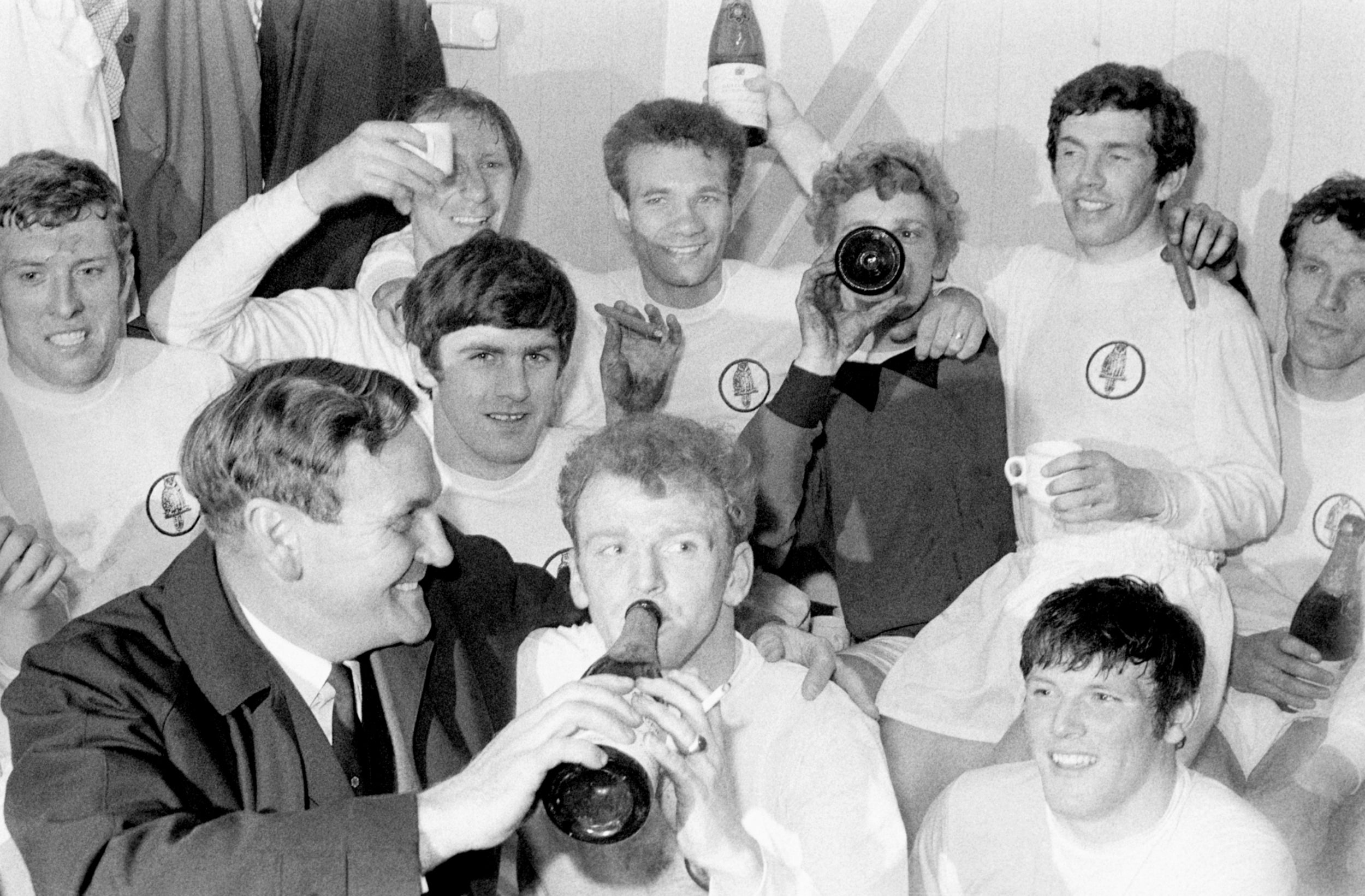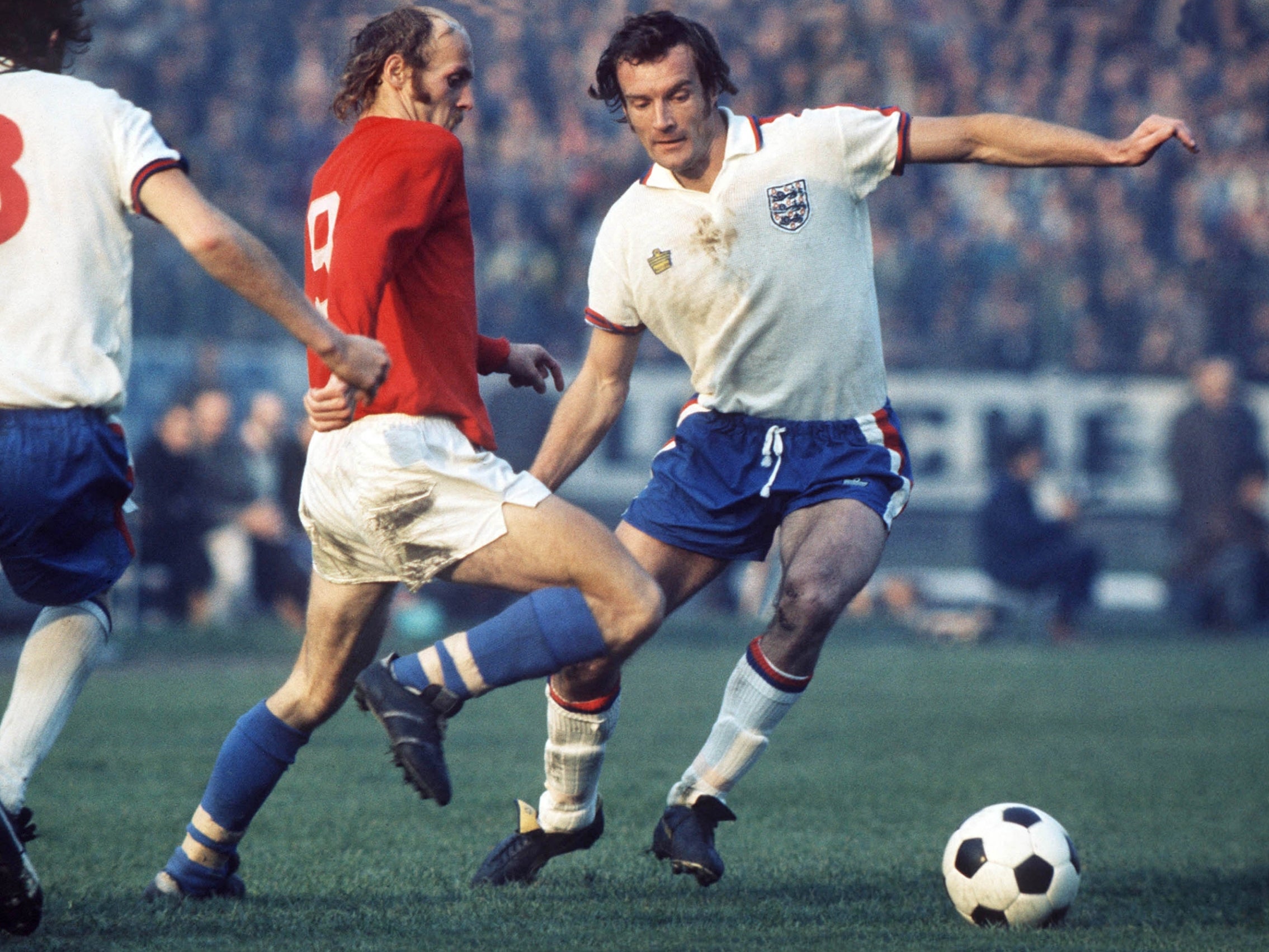Paul Madeley: Leeds United legend and 'Rolls Royce footballer' who shone all over the field
The utility man was a fixture during the Whites' golden age under Don Revie winning domestic and European trophies in an 18-year career with the club

Your support helps us to tell the story
From reproductive rights to climate change to Big Tech, The Independent is on the ground when the story is developing. Whether it's investigating the financials of Elon Musk's pro-Trump PAC or producing our latest documentary, 'The A Word', which shines a light on the American women fighting for reproductive rights, we know how important it is to parse out the facts from the messaging.
At such a critical moment in US history, we need reporters on the ground. Your donation allows us to keep sending journalists to speak to both sides of the story.
The Independent is trusted by Americans across the entire political spectrum. And unlike many other quality news outlets, we choose not to lock Americans out of our reporting and analysis with paywalls. We believe quality journalism should be available to everyone, paid for by those who can afford it.
Your support makes all the difference.A certain generation of football fans can recite Don Revie’s feared and fabled Leeds United side as easily as their two-times table. In the 1960s the goalkeeper is Sprake, in the 1970s Harvey, always followed by Reaney, Cooper, Bremner, Charlton, Hunter, Lorimer, Clarke, Jones, Giles, Gray. A neat trick, yet the putative classic lineup omits Paul Madeley, which Revie was always loath to do.
Madeley, who has died at the age of 73 after a succession of health problems exacerbated by the onset of Parkinson’s disease in 2003, was arguably the last of the great utility players. He made 725 appearances for Leeds, his hometown team and only club, amassing winners’ medals in the Football League, two of them, the FA Cup and Football League Cup, as well as two European medals in the Fairs Cup. He also won 24 caps with England, a total which may have been greater had he not, untypically, stoked controversy by spurning a place in the 1970 World Cup squad.
In the modern era the transfer value of a player who could perform to a specialist’s standard in both full-back berths, at centre-back, sweeper, on either flank, centre-midfield and, at a push, as target man or second striker, would be almost incalculable. (In 1967 Tottenham offered £200,000 for Madeley, which would have been a British record had Revie accepted it.) He performed all those roles, wearing every number from 2 to 12 during 18 years with Leeds (an era when the shirt a player wore denoted the position he filled).

However, he was a player without portfolio rather than a bit-part player. Revie branded him “the Rolls Royce of footballers”. John Giles, a Leeds team-mate, called him “seven top-class players in one”. Madeley eschewed the excessive physicality and gamesmanship for which Leeds became known, relying on skill, strength, balance, an unruffled temperament, astute reading of the game and a deceptive turn of speed.
The most local of all Revie’s “family”, born in Beeston, barely a drop kick from Elland Road, Madeley was an England schoolboys trialist and at 15 turned out for Middleton Parkside with future England players Paul Reaney and Kevin Hector. Whereas they progressed to Leeds and Bradford (Park Avenue) respectively, he worked in insurance and played left-half for Farsley Celtic. A Leeds scout reported that he had “poise and control but wants to play the game at his own speed and seems to lack pace
Revie, having signed him in 1962, when Leeds had narrowly escaped relegation to the Third Division, initially agreed that Madeley might be slow. He later learned he had been undefeated in schoolboy sprinting within the city between the ages of seven and 15. All he needed was the “sharpening up” that full-time training and coaching provided.

On New Year’s Day 1964, Madeley made his debut at centre-back against Manchester City. His tour of the team included an unsung yet crucial role as defensive foil to Giles and Billy Bremner in a midfield trio when Leeds first won the League in 1968-69. “Seeing Paul eat up the turf with his long, elegant strides,” mused Revie, “is like watching a Rolls slip into overdrive and glide gently away.”
In eight major finals between 1968 and 1975, he featured in seven positions. From left-midfield he scored a vital goal at Juventus to help Leeds regain the Fairs Cup in 1971, although Revie regarded his best position as right-back, rating him “the best in the world”.
Sir Alf Ramsey had wanted him to compete for that role after Reaney suffered a broken leg in the build-up to England’s World Cup defence in 1970. The uncapped Madeley – not in the provisional 40-man pool – turned down the invitation to become one of the 22 who went to Mexico. Criticised as unpatriotic, he explained that Leeds’ ultimately forlorn quest for the treble – League, FA Cup and European Cup – had left him drained. He preferred to go on holiday in Cornwall with his family. Ramsey selected Madeley the following year and he went on to occupy six positions for his country.
If he had a flaw, Revie, who also picked him for England, argued that he was too selfless, often passing when he was in a good shooting position. That said, Madeley’s goal tally reached double figures in 1967-68. Giles noted that he “doesn’t dominate in the air like Jack Charlton” but admitted it was a “minor weakness” which never left him exposed.

Astonishingly, given his reputation for keeping his counsel, Madeley’s intervention effectively ended Brian Clough’s ill-starred, 44-day reign as Revie’s successor at Leeds in 1973. At a crisis meeting chaired by director Sam Bolton and attended by Clough, Giles and Norman Hunter explained why they found it hard to work with the new manager after his remarks about them. Then the quiet man spoke up: “What the players are trying to say, Mr Bolton, is that he’s no good.” No wonder Clough’s successor, Jimmy Armfield, said: “When Paul Madeley talks, you listen.” Armfield later recalled how Madeley was so intent on continuing to play for Leeds, even as Revie’s team dispersed, that he once signed a contract without knowing what the salary offer was.
He finally retired during the 1980-81 season. Even before that point he had lent his name to a chain of Paul Madeley Colour Centre stores – building on the success of a DIY shop his brother John opened in 1967 – which sold paint, wallpaper and other decorating products. He ran the business with his brothers, father and sister-in-law before they sold up for £27m in 1987.
In 1992 Madeley had a benign brain tumour removed and in 2002 he survived a heart attack. Within a year he was diagnosed with Parkinson’s. In 2011, along with 700 Leeds supporters, he attended a gala dinner to raise money for a statue of Revie, but when the rest of the 1972 FA Cup-winning side took the stage for a Q&A session, he remained quietly at his table.
Paul Edward Madeley, footballer and businessman, born 20 September 1944, died 23 July 2018
Join our commenting forum
Join thought-provoking conversations, follow other Independent readers and see their replies
0Comments